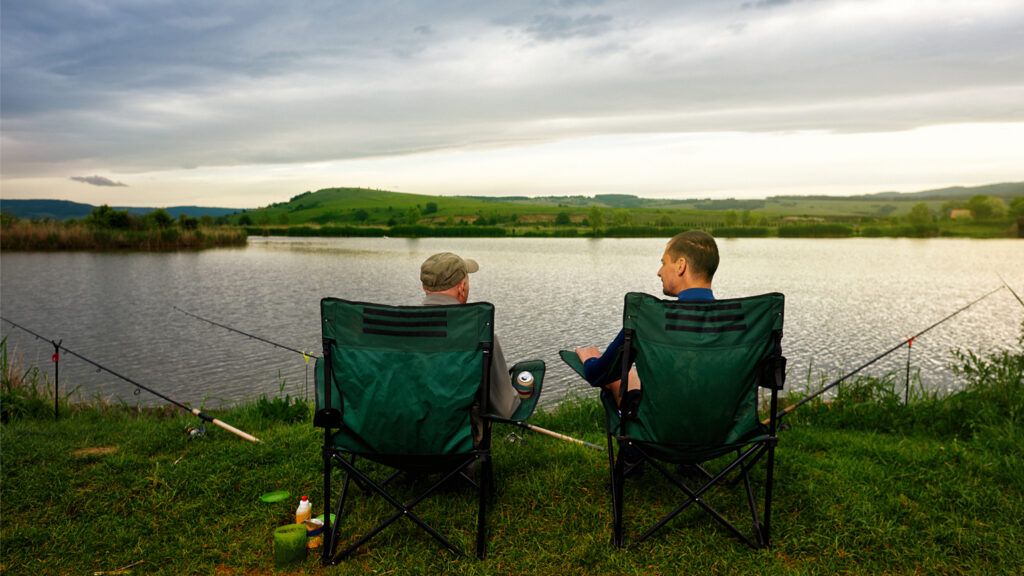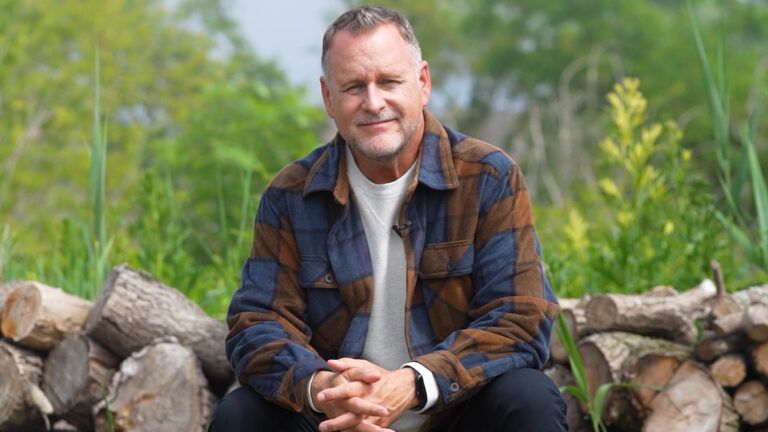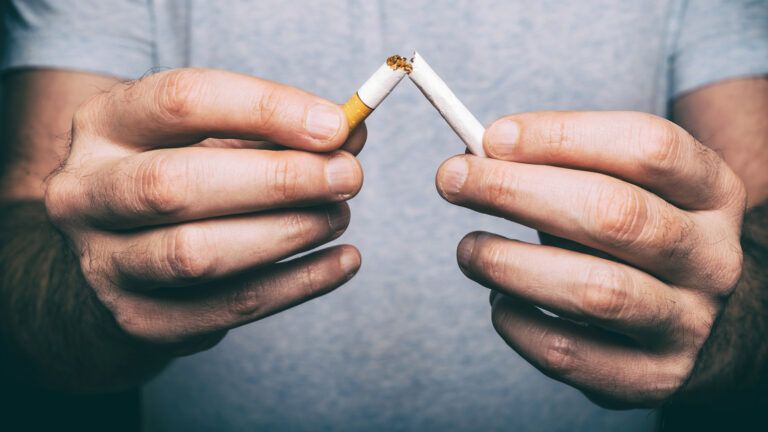We considered ourselves a normal, middle-class American family, a good family. My wife, Michelle, and I lived in a nice neighborhood with our two sons, Gordon, 15, and his brother, Gavin, 13. The local schools the boys attended were excellent. We were active in our church. We ate our meals together. We did things as a family.
That’s why it was so hard for us to see what was happening to Gordon, even when the warning signs were plainly there. Psychologists call it denial. For a long time we denied that our son was using drugs, and his worsening behavior was ripping apart our household.
It started with Gordon cutting classes. His grades plunged. We were called in for conferences at school. At home he grew uncommunicative, spending hours in his room, the door defiantly locked. He skipped meals. When he did emerge he was often belligerent. He fought with Gavin, to whom he’d always been such a wonderful big brother. Yet it was as if Gordon were becoming a different person, someone we didn’t know or even like. Still, we blindly refused to suspect drugs. Not our son. Not our home.
Michelle and I are both dyslexics. Gordon too is afflicted with this frustrating learning disorder. We became convinced that dyslexia, along with the usual teenage upheavals, was the root of Gordon’s trouble. It had to be that. So we decided to send him away to a private school specializing in dyslexic kids. But Gordon was strangely infuriated by our plan. “I won’t go!” he howled. “You can’t make me!” He stalked off to his room.
I felt bad forcing on him something he didn’t want, but Michelle and I were determined to spare him what we went through as students. “You’re going,” I said angrily through the door and above the roaring music. “And that’s that.”
I practically had to carry Gordon bodily from the house when it came time. He cursed. He kicked out a window. He cried. Eventually we wore him down and convinced him he had to go. Once inside the car he abruptly quieted down and slept quite heavily the whole drive there.
Gordon only did more poorly at private school, despite faculty assurances that he was bright and capable of the work. He was suspended several times. Michelle and I were devastated. What is going wrong? I’d lie awake at night wondering. When Gordon visited home he’d hole up in his room, blasting music and burning incense, while we sat silently in the living room below, burying ourselves in the newspaper, blocking out what was happening above our heads. Hardly ever did he speak a civil word to Gavin. Gavin just couldn’t understand what was happening to his brother.
This was not the good son we’d raised and loved. Where had we gone wrong? Parents make mistakes, but what had we done to cause such alarming behavior in our boy? The more we tried to help, the harder he pushed us away.
One night while I was on a business trip in Europe, I got a panicky call from Michelle. She was tremendously upset about the results of a physical Gordon had taken to attend camp that coming summer. The exam included a drug scan. “He tested positive for marijuana,” she divulged tearfully. “What are we going to do?” I was stunned. Even though the fractured pieces of Gordon’s puzzling behavior began to tumble into place before I hung up the phone, I was still nonplussed. How many times had we warned him against drugs? How many times had Gordon promised us he’d never try them?
There was nothing to tell Michelle but to pray and hang tight till I came home. The rest of that trip is a blur. When I got back I lost no time confronting my son. I was frantic to get this thing out in the open and deal with it.
“You turned up positive for marijuana on your physical, Gordon,” I said, my voice squeezing out the words.
His eyes widened slightly—he’d been caught. Then he smiled. “Okay, Dad.” He took a deep breath. “I…I tried it once. It was still in my system, I guess.”
Silence. I fumbled for what to say next. “I’ll never do it again,” he offered. Our eyes locked. Suddenly I knew he was lying. He knew I knew he was lying. But Gordon stuck to his guns. I could not believe that my own son was lying so effortlessly to my face about using marijuana. Finally he just climbed the stairs to his room and closed the door.
Michelle and I talked with our doctor, then made the decision. We would have Gordon treated in a drug rehabilitation center. We’d been blind for a long time; now we wanted to do everything to stop the problem before it got any worse.
But it was already too late. At the rehab Gordon admitted to taking not only marijuana but uppers, downers, PCP, cocaine, LSD and a slew of other substances we’d never even heard of. Our son was a drug addict.
Suddenly so much made sense: the moodiness and hostility, the grades, the wild rage at going off to a new school away from his drug source, the occasional missing money we couldn’t explain—all of it. It all made terrible, shocking sense.
A counselor forced us to confront the grim statistical reality of our situation, a reality we could no longer deny. “There are thirty-six kids in this unit,” she said carefully. “In five years twelve will be off drugs, twelve will still be using and twelve will be dead.”
Later we sat in our parked car and cried. Please, God, I prayed desperately, please don’t let my child die. Gordon would need six to eight weeks of intensive inpatient therapy, they said, at a cost of nearly $900 a day. Our insurance covered only 30 days.
“How will we ever manage?” I asked Michelle on the way home. She just stared out the car window. Neither of us had an answer.
We consulted a banker friend from church about a second mortgage. It proved unnecessary. Two days before our insurance ran dry Gordon was kicked out of rehab for fighting with the staff. Back home again he retreated to his room, isolating himself more than ever. The company—and the hours—he kept worried us sick. We never knew what he was going to do next.
We read books and joined self-help groups. We prayed. We cried. We got angry. We prayed harder. But Gordon didn’t change. There seemed to be nothing more we could do for him. At Al-Anon and Families Anonymous we heard about “toughlove,” how we had to stop blaming ourselves for Gordon’s problems. We had to think about Gavin and what Gordon was doing to his brother’s home life. We had to stop letting Gordon’s addiction wrench apart our whole family.
Finally Michelle and I had no choice but to go hard on him. We’d reached the end of our fraying rope. We’d tried everything. Looking Gordon straight in the eye, I said, “In one month you’ll be retested for drugs. If you flunk you’ll have the option of going into treatment, or leaving home for good—or until you kick drugs.”
I paused, wondering if my words had hit their mark. Gordon glowered, speechless. “From now on,” I continued, “you’ll be home by curfew or you’ll sleep elsewhere. Same goes for mealtimes. This isn’t a truck stop.”
“We love you,” added Michelle, “but we don’t like who you’re turning into, and we won’t tolerate it in our home.”
A month later, after he’d slept elsewhere many nights and missed many meals, Gordon retested positive. We stuck with the ultimatum. He packed an old knapsack and left, slamming the door. With all my might I resisted running after him. The weeks that followed were painful for our family. Things fell apart. The demands of a new job put pressure on me at a time when I didn’t think I could take any more. To combat the anxiety she felt over Gordon’s leaving, Michelle took up aerobics, only to injure both ankles at class and end up on crutches. She became more depressed than ever. We had no idea where Gordon was but we knew he was suffering.
Then, while riding his bike, Gavin had a dreadful accident. Michelle called me from the hospital; Gavin had been taken there in a coma. I rushed to his side, frantic. The doctors could promise nothing. The only thing to do was wait and see if he came out of it, wait and pray.
“Gordon should know about this,” I said to Michelle grimly. “He may have turned his back on us, but he still has a brother.”
The next day we cruised the streets. We found him hanging out with some druggie friends. He was reluctant to talk so I minced no words. “Your brother’s had a bad accident. He’s in a coma. We don’t know what’ll happen.”
I searched his eyes for a flicker of worry. But “You all right, Mom?” was all he managed to mumble. Michelle nodded. Then he turned and left to be with his friends. We drove home in silence. It’s in Your hands now, Lord.
Early one sunny morning a few days later we heard a faint knock at our door. It was Gordon—deathly thin, weak, bedraggled. His vacant, red-rimmed eyes met ours. “I’m ready,” he barely whispered, “to go where you want. Take me today.”
Parents make mistakes, but what had we done to cause such alarming behavior in our boy? We put Gordon in a drug treatment program where he got help in fighting his addiction one day at a time—and where we too learned how to recover as a family. We didn’t expect miracles. The simple realities of addiction had long before taught us not to expect either good or bad, but to accept God’s will in our lives.
Miraculously Gavin pulled out of his coma with no permanent damage. We still don’t know exactly what brought Gordon to our doorstep that bright morning not long after the accident, but we know that somehow a power greater than his addiction drew him home.
The four of us will never be quite the same. Drug addiction unravels the home, not just the addict. But in a way I think that recovery has made us a closer family, a family that was forced to draw on love to keep from coming apart.
This story first appeared in the November 1991 issue of Guideposts magazine.






